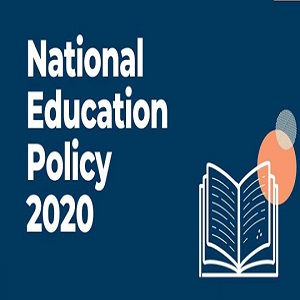|
|
|
|
Union Minister of Education and Skill Development & Entrepreneurship, Shri Dharmendra Pradhan, launched the SWAYAM Plus Platform.
Read more
|
UGC chairman Mamidala Jagadesh Kumar emphasized the need for continuous introspection and embracing reforms in higher education as per the National Education Policy 2020.
Read more
|
|
|
|
Chief Justice of India Justice D Y Chandrachud Friday said university education in law should be extended
to remote rural areas so that students from small towns are not deprived of the opportunity to become lawyers.
Read more
|
Union Education Minister inaugurates 211 PM SHRI schools.
Read more
|
|
Holistic Education in Higher Education
Holistic education is a pedagogical philosophy that emphasizes the development of the whole individual—mind, body, and spirit. It moves beyond the traditional focus solely on academic achievement to encompass social, emotional, physical, and spiritual growth. When evaluating global perspectives on holistic education, it's essential to consider diverse cultural, societal, and educational contexts that influence its interpretation and implementation. Holistic education in higher education represents a paradigm shift from traditional,
content-focused approaches towards a more comprehensive and integrated model that addresses the multifaceted needs of students.
In Western countries such as the United States and Europe, holistic education in higher education often intersects with progressive pedagogies and student-centered approaches. Universities increasingly recognize the importance of fostering not only academic excellence but also personal growth, critical thinking skills, and social responsibility among students. Institutions may integrate holistic principles into curriculum design, teaching methodologies, and support services to create a more enriching and transformative educational experience. For instance, liberal arts colleges in the U.S. emphasize interdisciplinary learning, experiential education, and community engagement as central components of holistic education. Students are encouraged to explore diverse subjects, engage in reflective practices,
and participate in service-learning opportunities to develop a broad understanding of the world and their role within it.
In Scandinavia, particularly in countries like Finland, holistic principles are embedded in mainstream educational practices. The Finnish education system is renowned for its emphasis on equity, student well-being, and a holistic approach to learning that prioritizes play, creativity, and self-directed exploration over standardized testing and competition. Finnish schools emphasize play-based learning, outdoor activities, and collaborative projects, which are believed to foster holistic development among students. The Scandinavian perspective on holistic education emphasizes equity and inclusivity.
It seeks to create learning environments where all students feel valued and supported in their individual growth and development.
With regard to Eastern cultures, holistic education finds expression in indigenous educational philosophies that have long recognized the interconnectedness of all aspects of human development. For instance, in countries like India and China, educational systems influenced by ancient traditions incorporate mindfulness practices, moral education, and character development alongside academic subjects. These systems often aim to cultivate not only scholars but also well-rounded individuals with a deep sense of ethical responsibility and social harmony.
Holistic education is often community-centered and participatory. It recognizes the importance of cultural relevance and local knowledge in shaping educational practices. By involving local communities in the design and implementation of educational programs, holistic approaches can better address the unique needs and challenges faced by marginalized populations
Concerns
Despite its benefits, holistic education also faces challenges and critiques on a global scale. Some critics argue that it lacks rigor and fails to adequately prepare students for the demands of modern society, particularly in terms of academic achievement and technological literacy. In some cases, policymakers and educators may prioritize narrow measures of academic success over broader indicators of student well-being and social-emotional learning.
The holistic education in HEIs often responds to pressing social and economic challenges. HEIs may prioritize community-based learning, sustainable development initiatives, and entrepreneurship education to empower students as agents of positive change in their communities as part of Institutional development strategies. Holistic approaches to higher education in these contexts recognize the importance of addressing broader societal issues alongside academic learning. Non-governmental organizations and grassroots initiatives in countries across Africa, Latin America, and Asia are pioneering holistic educational programs that integrate practical skills training, community engagement, and sustainability education to empower marginalized communities and foster sustainable development
However, despite growing recognition of the value of holistic education in higher education, challenges persist. Limited resources, institutional resistance to change, and cultural barriers can hinder the widespread adoption of holistic principles. Moreover, the dominance of standardized testing and performance metrics in higher education evaluation frameworks may undermine efforts to promote holistic development among students.
Dr. Sindhuja C V
Sr. Assistant Professor, CESS
|
With no NEP, State-run universities face the threat of losing funds under the PM-USHA (Prime Minister Rashtriya Uchatar Abhiyan) scheme.
Read more
|
|
|
|
The higher education department has signed agreements with eight universities in Australia and Newzealand to provide job-oriented skill education.
Read more
|
Saswati Sarkar writes: Is CBSE considering open book exams for Class 9 to 12?
Read more
|
|
|
|
Prof. T G Sitharam writes: Empowering Tomorrow by Fostering Innovation, Startups, and Entrepreneurship in HEIs.
Read more
|
Centre for Educational and
Social Studies
The Centre for Educational and Social
Studies (CESS) is a registered society
established in 2006. Since its
inception CESS has been working in the
field of education. CESS, guided by
its vision of bringing about ‘Social
Transformation Through and With
Education’ is striving to draw the
attention of stakeholders, including
State and Central Government, on vital
issues of education. We at CESS engage
in Research, Policy Advocacy and
Capacity Building in the broad sphere
of Education. In the recent past,
since the unveiling of NEP, CESS has
conducted over 100 webinars and
stakeholders consultations on policy
awareness and on policy implementation
and has reached out to more than
30,000 stakeholders of education. CESS
has launched ‘NEP Ready’-a capacity
building training workshops to
facilitate HEIs in the effective
implementation of NEP 2020.
Disclaimer: This document is being
presented to you for your information.
The information and opinions in the
news articles contained in Shikshana
Mahithi are captured from the
government websites and authors of the
articles. CESS is a not-for-profit
organization and does not endorse the
presented news.
|
|
|








